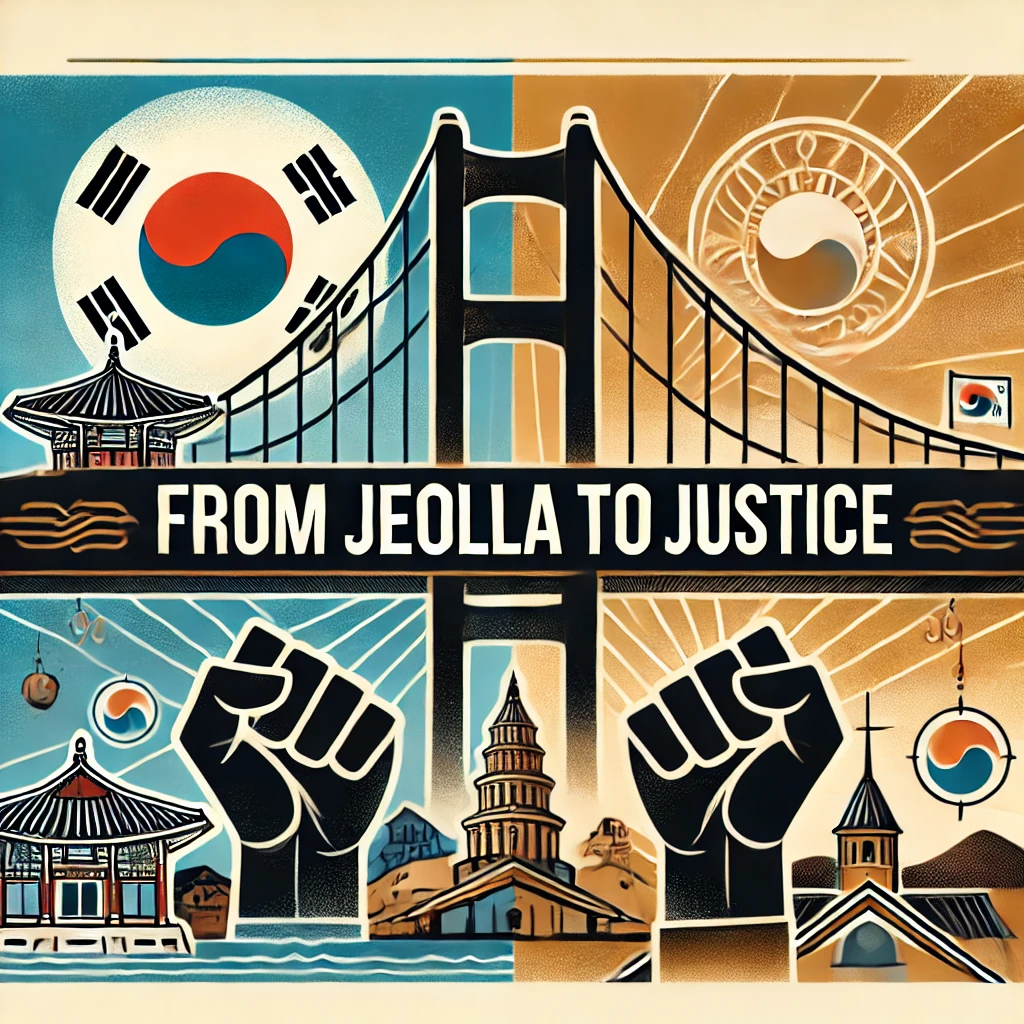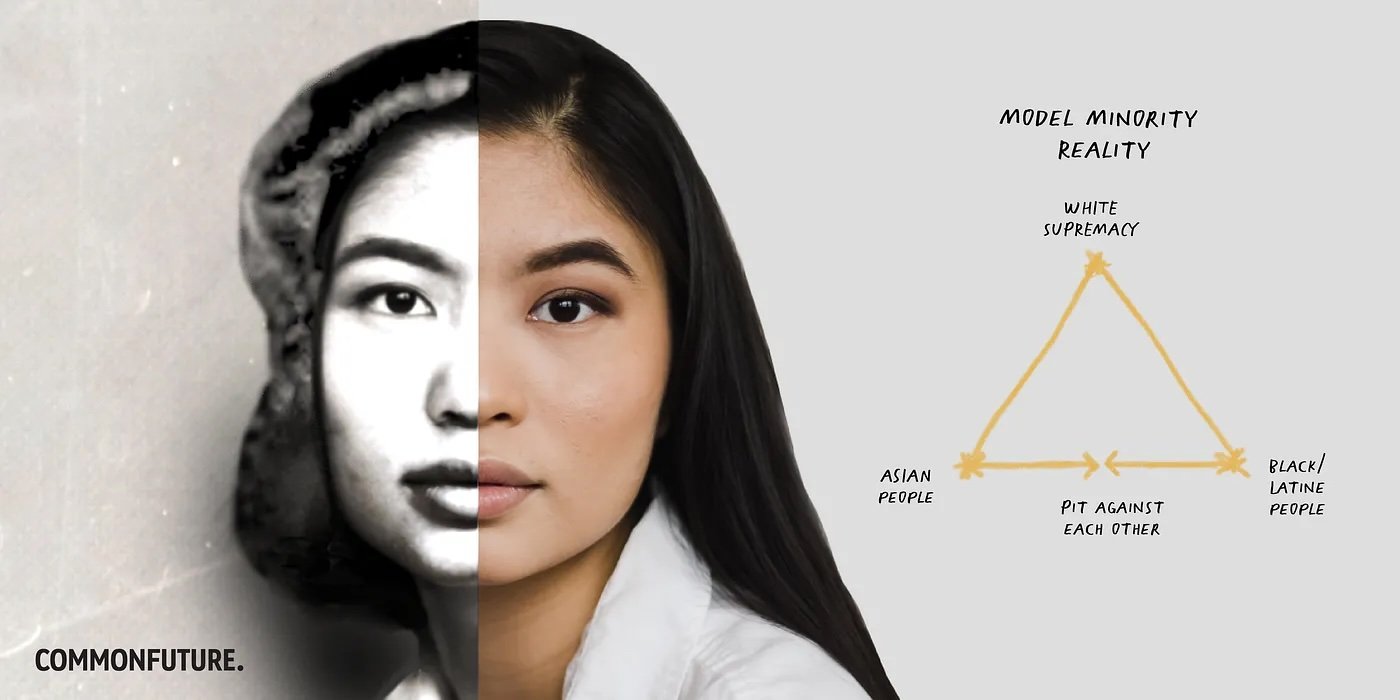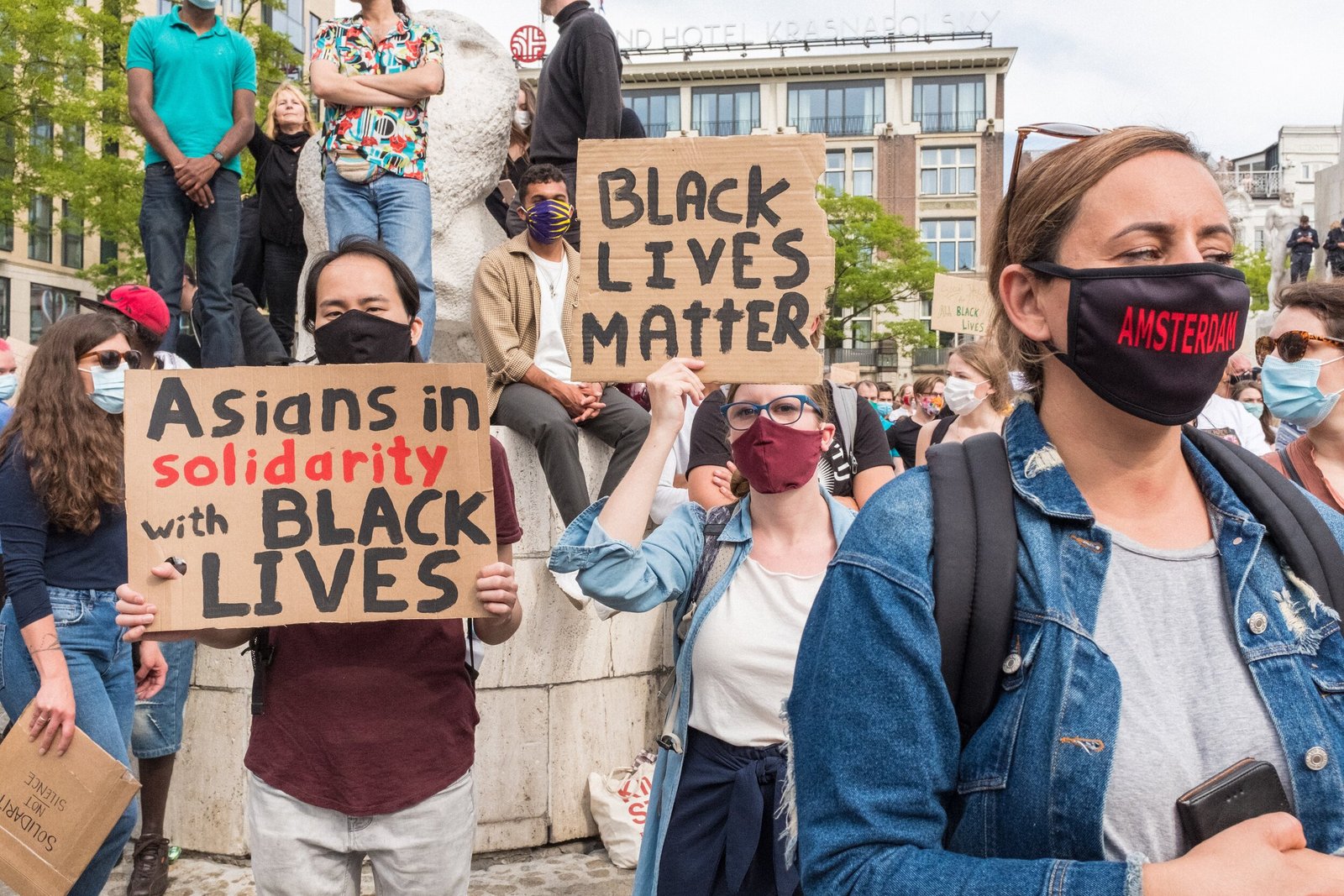The perspective gained from the experience of Jeolla-do discrimination positions Asian Americans – particularly those with a nuanced understanding of regionalism and social exclusion – to serve as bridge-builders between Black communities and Asian American communities in the fight for racial justice. Here’s how:
1. Empathy Through Shared Marginalization
The discrimination faced by people from Jeolla-do in South Korea reflects broader patterns of systemic exclusion that Black Americans have endured for centuries in the United States. Both forms of oppression stem from entrenched systems of power and social hierarchies that divide and dehumanize communities based on race, ethnicity, and place of origin.
- Just as Jeolla-do residents were viewed as “untrustworthy” or “backward” due to their regional origin, Black Americans have historically been cast as inferior or threatening.
- Both groups have experienced structural discrimination in education, employment, and political representation – being marginalized not because of individual merit but because of social stigmas rooted in history.
Understanding this parallel allows Asian Americans with Jeolla roots to approach Black communities not with pity or superiority, but with true empathy. An Asian American who recognizes how deep and generational Jeolla discrimination runs can more easily understand the multigenerational trauma that Black Americans experience due to slavery, Jim Crow, and ongoing systemic racism.
➡️ Bridge-Building Insight: Empathy rooted in personal or family experiences with marginalization fosters a deeper understanding of why issues like redlining, police brutality, and economic exclusion affect Black communities so profoundly. This kind of empathy helps avoid defensiveness or misunderstanding when engaging in interracial dialogue about privilege and injustice.
2. Recognizing Divide-and-Conquer Tactics
A key reason Asian Americans have at times struggled to align with Black Americans in the fight for racial justice is the “model minority myth.” This myth was intentionally weaponized to divide Asian and Black communities by suggesting that Asians had “succeeded” in the U.S. through hard work and discipline – implying that Black Americans’ struggles were due to cultural failings rather than systemic barriers.
This tactic parallels how Jeolla-do’s marginalization was reinforced by political and economic favoritism toward Gyeongsang Province. During the Park Chung-hee era, leaders promoted a narrative that Gyeongsang’s economic success was due to superior work ethic and loyalty to the state – implicitly blaming Jeolla’s economic struggles on laziness or political defiance. The strategy of rewarding one group while marginalizing another is a classic divide-and-conquer strategy that white supremacy has also employed in America.
➡️ Bridge-Building Insight: An Asian American who understands how division was used to sustain discrimination in Korea can better identify and dismantle similar tactics in the U.S. They can speak from a position of credibility when explaining to other Asian Americans why the model minority myth is harmful and how it’s rooted in white supremacy’s effort to pit racial groups against each other.
3. Theological Understanding of Shared Liberation
Christian theology provides a powerful framework for understanding why solidarity between marginalized groups is not just a social good – it is a biblical imperative. The experience of Jeolla-do discrimination reveals that true justice is not only about ending personal bias but also about dismantling unjust structures.
In the Bible, God’s liberation is never limited to one group – it extends to all people who are oppressed:
- The Exodus narrative (Exodus 3:7–10) shows that God’s deliverance is not only for individuals but for an entire nation.
- In Luke 4:18–19, Jesus declares that He has come to “proclaim freedom for the prisoners and recovery of sight for the blind, to set the oppressed free.”
- Galatians 3:28 proclaims that in Christ, racial and social divisions are dissolved: “There is neither Jew nor Greek, slave nor free, male nor female, for you are all one in Christ Jesus.”
The struggle for Black freedom and Asian dignity are not separate battles – they are interconnected expressions of the same biblical call for justice and reconciliation.
➡️ Bridge-Building Insight: An Asian American Christian with knowledge of Jeolla’s history can testify that healing comes not from competing over who suffered more, but from recognizing that liberation is collective. Speaking from a theological framework allows Asian Americans to approach racial justice not just as an ally, but as a co-laborer in Christ’s work of reconciliation.
4. Modeling Cross-Cultural Humility
Because Jeolla people have often had to “code-switch” – hiding accents, adopting mainstream behaviors, and navigating bias to succeed – they have developed a deep awareness of how cultural identity functions within a power structure. Similarly, many Asian Americans in the U.S. have experienced “code-switching” in predominantly white spaces to avoid discrimination or gain social acceptance.
Black Americans, however, face a different challenge: assimilation is not enough to protect them from racial profiling, violence, and systemic exclusion. This is why the phrase “respectability won’t save us” has become a rallying cry within Black communities. Asian Americans who understand the limits of code-switching in the Jeolla context can approach racial solidarity with greater humility – recognizing that even if assimilation has worked for some Asians, it’s not a universal solution for racial justice.
➡️ Bridge-Building Insight: This humility creates space for listening rather than prescribing. Asian American Christians can say, “We have our own story of marginalization, but we don’t assume it’s the same as yours – we want to hear what you need.” This posture builds trust and opens room for deeper collaboration.
5. Collaborative Action Through the Church
Churches in Korea played a significant role in healing the wounds of the Gwangju Massacre and advocating for democratization. Likewise, the Black church in the U.S. has historically been at the forefront of racial justice movements – from abolition and civil rights to Black Lives Matter.
Asian American Christians who are grounded in this history of church-led resistance can approach the Black church not as an outsider, but as a fellow member of the body of Christ who has witnessed God’s faithfulness in the face of injustice.
➡️ Bridge-Building Insight: Joint worship services, prayer gatherings, and justice initiatives can serve as platforms for relationship-building between Black and Asian American Christians. Asian American pastors can publicly acknowledge the struggles of the Black church while also testifying to their own history of marginalization. This mutual exchange of stories – not competing, but amplifying – can strengthen cross-racial Christian solidarity.
6. Confronting Internalized Bias and Anti-Blackness
Just as some Jeolla people internalized negative stereotypes about their own region, some Asian Americans have absorbed anti-Black sentiment due to proximity to white supremacy. Tackling anti-Blackness within Asian American communities is essential for building solidarity.
An Asian American with ties to Jeolla-do can speak honestly about the temptation to resent or distrust other marginalized groups – and how this division ultimately serves the interests of the oppressor. Testimonies of overcoming internalized shame can inspire others to recognize and resist anti-Black bias in their own communities.
➡️ Bridge-Building Insight: When Asian Americans acknowledge their own internalized prejudice, they signal to Black communities that they are prepared to do the hard work of reconciliation – not just offering symbolic gestures, but transforming their own hearts and relationships.
✅ Practical Steps to Build Bridges:
- Storytelling: Create spaces in churches and community centers for Black and Asian American Christians to share their stories of discrimination and resilience.
- Joint Advocacy: Asian American and Black congregations can jointly support policies that address racial disparities (e.g., housing, policing, education).
- Mutual Education: Asian Americans can educate themselves about Black history, and Black Americans can learn about Jeolla’s history – fostering mutual respect.
- Pulpit Exchanges: Invite Black and Asian pastors to preach in each other’s churches.
- Proactive Solidarity: Asian Americans should be present at protests, rallies, and vigils for Black lives – not as spectators, but as family.
🌍 Liberation is Collective
Discrimination against Jeolla-do taught this Korean Christian that marginalization is systemic, not personal – and that liberation must come through collective action and spiritual truth. The same principles apply in America’s racial justice struggle. The Jeolla story is not just a Korean issue; it’s a kingdom issue. Black and Asian Christians, standing together as one body in Christ, have the opportunity to model what true reconciliation looks like. The wounds of discrimination run deep – but the healing, when rooted in the gospel, can run deeper.



